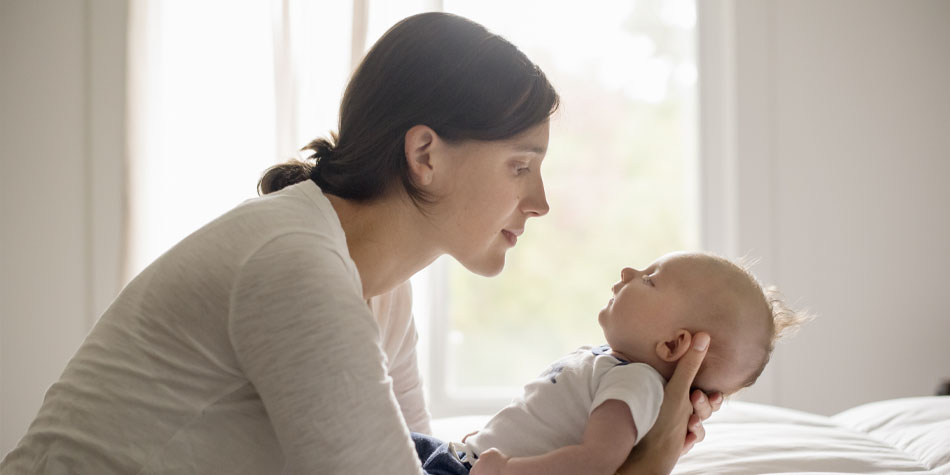Newborns and coronavirus: Helpful ways to protect their health
- Posted On:
- Written By: Tulane Lakeside Hospital

One thing that won’t ever change? Newborn babies at our hospital and their mothers who get our absolute best, every time. It’s understandable for parents to have questions about what to be aware of with respect to newborns and COVID-19.
Although there’s no vaccine for COVID-19 yet, there are ways to safeguard yourself and your baby from exposure to the virus.
Helpful ways to avoid infection
Your newborn’s health is your top priority. And it’s ours too, even long after you leave our maternity ward. Here are some preventive measures we recommend to protect you and your family’s health in the days and weeks after bringing home your baby:
- Once you return home from our facility, we encourage you to limit the number of visitors coming into the home and leverage technology to connect with loved ones (e.g. FaceTime, Skype or Zoom).
- Avoid people who are sick or who have been exposed to the virus.
- Stay home as much as possible.
- Maintain distance between yourself and other people outside of your home (at least 6 feet, or about 2 arms’ length from other people).
- Cover your mouth and nose with a cloth face cover when around others. The Centers for Disease Control and Prevention (CDC) recommends that everyone 2 years old and up wear a cloth face covering that covers their nose and mouth when they are out in public spaces.
- Wearing a cloth face covering is not a substitute for everyday preventive actions, and it should be used in addition to the preventive steps detailed below. A cloth face covering is not intended to protect you, the wearer, but it may prevent you from spreading the virus to others.
- Do NOT put cloth face coverings on babies or children younger than 2. Plastic face shields for newborns and infants are NOT recommended.
- Cloth face coverings should not be worn by anyone who has trouble breathing, is unconscious, can’t move, or is otherwise unable to remove the face covering without assistance.
- Cover your coughs and sneezes (using your elbow is a good technique).
- Try not to touch your eyes, nose or mouth.
- Wash your hands regularly with soap and water for at least 20 seconds, or use an alcohol-based hand sanitizer with at least 60% alcohol.
- Clean and disinfect objects and surfaces you touch regularly using a regular household cleaning spray or wipe. Use hot, soapy water or a dishwasher to wash dishes and utensils.
- Talk to your healthcare provider about any concerns about your health, the health of your baby and any potential risk associated with COVID-19.
Reduce the risk of sudden infant death syndrome (SIDS)
During this time of increased stress during the pandemic, experts are cautioning parents about the effects of increased worry or fatigue that could affect their infants’ sleep practices, and potentially their safety. According to the CDC, you can help reduce your baby’s risk of sudden infant death syndrome (SIDS) and other sleep-related deaths by doing the following simple steps:
- Place your baby on his or her back during naps and at night.
- Use a firm, flat sleep surface, such as a mattress in a crib, covered by a fitted sheet.
- Have the baby share your room but not your bed. Your baby should not sleep on an adult bed, cot, air mattress, or couch, or on a chair alone, with you, or with anyone else.
- Keep soft bedding such as blankets, pillows, bumper pads, and soft toys out of your baby’s sleep area.
- Do not cover your baby’s head or allow your baby to get too hot. Signs your baby may be getting too hot include if he or she is sweating or if his or her chest feels hot.
- Do not smoke or allow anyone to smoke around your baby.
Visit the CDC for additional resources and information on preventing COVID-19.
The importance of vaccinations for newborns
According to the CDC, an infants’ immune system is not fully developed after birth, and without vaccinations, babies are at a greater risk for contracting a serious illness.
Here is why vaccinations are critical to protecting your newborn’s health:
- Vaccinations use a very small amount of antigens to work with your baby’s natural defenses, to help your child safely build immunity against diseases.
- Vaccinations are clinically tested to ensure safety and effectiveness for children to take at the recommended stages in life.
- On-time vaccinations can help your child ward-off potentially life-threatening diseases.
For more information about recommended vaccinations for your newborn, please view this helpful tracker created by the CDC. And remember, we are always here to help. If you need additional guidance or have questions about how to keep your newborn safe and healthy at home, consult with your healthcare provider.